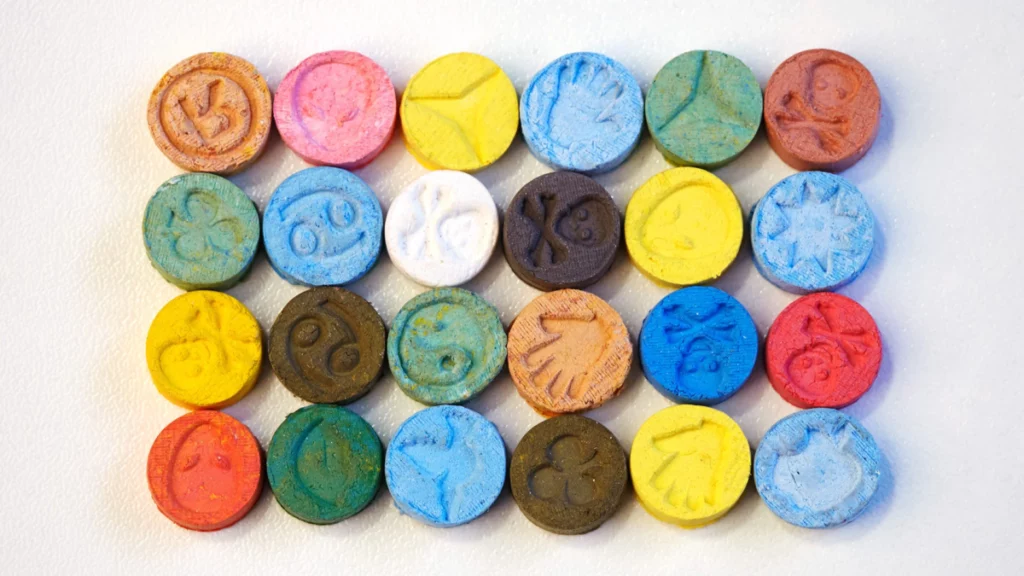Choosing Your Guide
Choosing Your Guide
Why the Right 5-MeO-DMT Facilitator Is Essential for a Safe and Transformative Journey
As the popularity of 5-MeO-DMT grows, so does the number of facilitators offering to guide people through this powerful and often life-altering psychedelic. Known as “the God molecule,” 5-MeO-DMT doesn’t just alter perception, it can dissolve the self entirely. In this kind of terrain, the importance of a skilled, ethical, and trauma-informed guide cannot be overstated. The medicine may reveal what you truly are, but it is the facilitator’s presence, training, and process that often determines whether that revelation leads to awakening or fragmentation.
Choosing the right guide isn’t about finding someone charismatic or spiritually compelling. It’s about finding someone prepared, someone who understands that working with 5-MeO-DMT requires more than good intentions. A qualified facilitator should have formal training specific to this compound, not just generalized psychedelic experience. They should be able to distinguish between being a sitter, a guide, and a trauma-informed practitioner—and explain how their role supports you through each phase of the journey.
RELATED: The 5 MEO-DMT Experience: A Tool for Transformation and Healing
The risk of psychological destabilization is real. This medicine doesn’t just give you a vision—it can blow open your unconscious, surfacing stored trauma, suppressed memories, or existential confusion. A trauma-informed facilitator knows how to recognize signs of dissociation or overwhelm and respond in a way that grounds, rather than retraumatizes, the participant. This kind of awareness doesn’t come from intuition alone. It comes from real training, often including modalities like somatic experiencing, Internal Family Systems (IFS), or nervous system regulation strategies.
A red flag many overlook is a rushed or superficial intake process. A mature facilitator doesn’t simply ask for a few health details and move on. They take time to explore your psychological history, your current emotional landscape, your medications, and especially your trauma background. This isn’t to be invasive, it’s to protect you. Individuals with a history of psychosis, schizophrenia, mania, or very recent major trauma may not be ideal candidates. A good facilitator will tell you that—and may even refer you elsewhere.
Similarly, preparation isn’t a checklist, it’s a ceremony in itself. The work begins before you ever inhale the medicine. A skilled guide will help you reflect on the identities or patterns you’re hoping to dissolve, and the emotions or memories you’re afraid might surface. They’ll support you in establishing anchors, practices, values, or relationships you can return to when the ground beneath you disappears. Journaling, meditation, breathwork, and even dietary shifts may be part of this phase. In this way, preparation becomes part of the medicine, not just the prelude to it.
RELATED: Learning Love and Acceptance through the Spirit Molecule
Too often, facilitators present informed consent as a one-time signature on a waiver. But true consent is an ongoing, dynamic conversation. You should know what substance you’re receiving (synthetic or toad-derived), what interventions might be used (such as music, touch, or guided breathwork), and what happens if things go off-script. You should also understand that while many have mystical, beautiful experiences, others encounter chaos, fear, or nothing at all. The facilitator should not only explain this spectrum, but they should also make space for your questions and your “no,” at any point.
And then, when it’s over, the real journey begins.
Integration is not optional. Without proper support, the experience may fade into abstraction—or worse, cause existential disorientation. The right facilitator understands this. They offer or partner with others to offer a path back. That path may include integration sessions to help make meaning of what occurred, somatic practices to settle the nervous system, and deep inquiry to explore how the experience challenges or clarifies your values. The point of 5-MeO-DMT is not the fireworks, but instead, it’s the reassembly. A good facilitator doesn’t just drop you off at the peak; they walk with you on the way back down.
No one person can be all things, which is why a mature facilitator is never working alone. They have relationships with licensed therapists, bodyworkers, and spiritual mentors. If something destabilizing occurs, they know where to turn and who to call. If someone insists, they can do everything themselves—or worse, that no post-ceremony issues ever arise then they’re either dangerously naive or willfully misleading.
This is sacred work. But it is also clinical, psychological, and relational work, and the people holding space for it should be prepared to meet you on every one of those levels. The right facilitator will not promise transcendence or guarantee bliss. What they will do is hold you through whatever emerges, with steadiness, humility, and care.
You are not just a participant in a mystical event. You are a whole human being, entering one of the most profound states of consciousness available to us. You deserve a guide who honors that depth, and who is deeply prepared to meet you there.
Choose wisely. Your soul is not an experiment.
Gallery
Recent Articles
Unicorn by Rio Kosta–Album Review
•
February 24, 2026
Vinyl Relics: Black Kangaroo by Peter Kaukonen
•
February 21, 2026

Loading...




